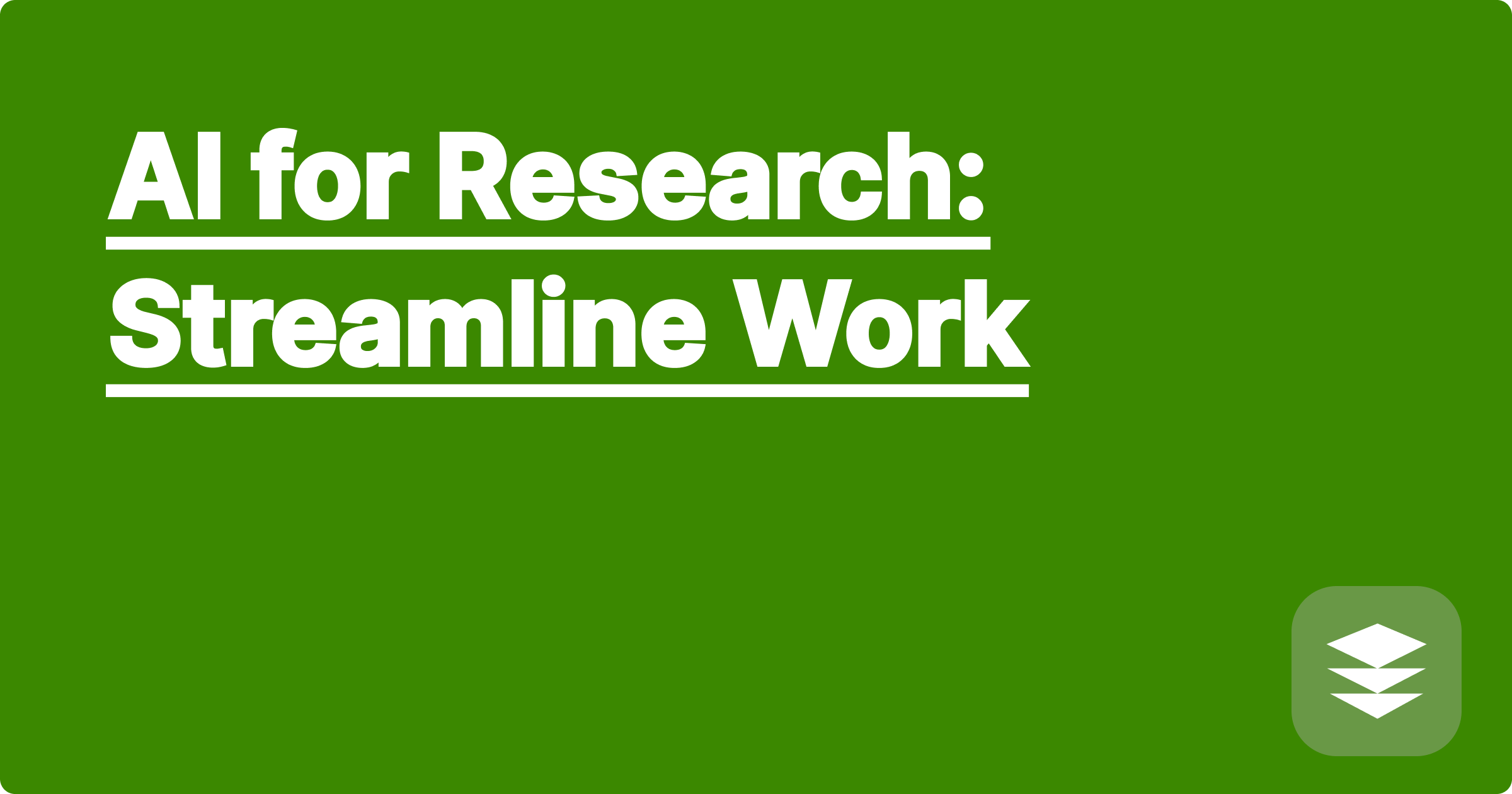
The demanding world of STEM education and research often leaves students and researchers feeling overwhelmed. Balancing coursework, research projects, lab work, and personal life can be a constant struggle. The pressure to maintain a high GPA while contributing meaningful research can feel insurmountable. However, the rise of artificial intelligence offers a powerful new set of tools to streamline workflows, boost productivity, and unlock unprecedented academic success. AI is no longer a futuristic concept; it's a practical resource that can transform how STEM students and researchers approach their work, helping them achieve more with less stress.
This blog post explores how AI-powered tools can be integrated into every facet of a STEM student's or researcher's life, from personalized study plans and efficient time management to advanced research assistance and even mental well-being support. We'll delve into specific examples, practical tips, and real-world success stories to demonstrate how AI can be your secret weapon in navigating the challenges of STEM and achieving your academic goals. We'll also introduce you to GPAI, a hypothetical AI learning platform, to illustrate how these powerful tools can be practically applied.
STEM fields are inherently complex, requiring students to master intricate concepts, conduct rigorous experiments, and analyze vast amounts of data. Traditional learning methods often fall short in providing the personalized support and adaptive learning experiences that many students need to thrive. Research, too, can be a laborious process, involving extensive literature reviews, data collection, and analysis. Finding relevant information, staying organized, and managing time effectively are crucial for success, yet these are often the areas where students and researchers struggle the most. This can lead to burnout, decreased productivity, and ultimately, hinder academic progress.
AI offers a transformative solution to these challenges. AI-powered learning platforms like the hypothetical GPAI can analyze a student's strengths and weaknesses, creating personalized study plans that target areas needing improvement. These platforms can also generate practice questions, provide instant feedback, and track progress over time. For researchers, AI tools like ChatGPT, Claude, and Wolfram Alpha can automate tedious tasks such as literature reviews, data analysis, and even drafting sections of research papers. These tools can sift through massive datasets, identify patterns, and generate insights that would be impossible for a human to uncover manually. By automating these tasks, researchers can focus on the more creative and strategic aspects of their work.
Imagine using GPAI to prepare for an upcoming organic chemistry exam. You would first input your syllabus and learning objectives. GPAI would then analyze your past performance and identify areas where you need more practice. It would generate a personalized study plan, recommending specific topics to review, practice problems to solve, and even suggest relevant videos and online resources. As you work through the material, GPAI tracks your progress, providing instant feedback and adjusting the study plan as needed. For research, imagine using Wolfram Alpha to solve complex equations or simulate physical phenomena. You simply input the parameters, and Wolfram Alpha provides the solution, along with visualizations and explanations. Similarly, ChatGPT can help you brainstorm research ideas, summarize complex articles, and even generate code snippets for your experiments.
A physics student could use an AI-powered simulation tool to visualize complex concepts like fluid dynamics or electromagnetic fields. By manipulating variables and observing the results in real-time, they can develop a deeper understanding of the underlying principles. A chemistry student could leverage AI-powered molecular modeling software to predict the properties of new compounds, accelerating the drug discovery process. A mathematics student might use an AI tool to verify complex proofs or explore different approaches to solving mathematical problems. For instance, they could input a theorem into Wolfram Alpha, and the tool would not only verify the proof but also provide alternative proofs and related concepts.
Integrating AI into your workflow requires a strategic approach. First, identify your specific needs and challenges. Are you struggling with time management, understanding complex concepts, or staying organized? Once you've identified your pain points, you can start exploring the vast array of AI tools available. Don't be afraid to experiment with different platforms and find what works best for you. Remember that AI is a tool, and its effectiveness depends on how you use it. Combine AI-powered tools with proven study techniques like the Pomodoro method to maximize your productivity. Use AI to automate repetitive tasks, freeing up your time for more creative and strategic work. Finally, don't forget the importance of mental well-being. AI-powered meditation apps can help you manage stress and maintain a healthy work-life balance.
To illustrate the power of AI, consider the hypothetical case of Sarah, a biology student who struggled with genetics. Using GPAI, Sarah received personalized study plans that focused on her weak areas. GPAI's interactive simulations and practice quizzes helped her solidify her understanding of complex concepts. As a result, Sarah not only aced her genetics exam but also developed a genuine interest in the subject. Similarly, John, a graduate student in engineering, used ChatGPT to streamline his literature review. ChatGPT quickly summarized hundreds of research papers, saving John countless hours and allowing him to focus on designing his own experiments.
Begin by exploring the many available AI tools. Research platforms like GPAI (or real-world equivalents like Khan Academy, Quizlet, and Grammarly) offer personalized learning experiences and can significantly enhance your understanding of complex topics. Experiment with different AI-powered writing assistants, research databases, and time management apps. Find the tools that best fit your individual needs and integrate them into your daily workflow. Remember, the key to success in STEM lies not only in hard work but also in working smart. By embracing the power of AI, you can unlock your full potential and achieve your academic and research goals.
Conquer STEM: AI Study Strategies
AI Calculus Tutor: Master Concepts
AI for Research: Streamline Work
AI for Lab Reports: Data Analysis
AI Homework Helper: STEM Solutions
Ace Exams: AI Study Strategies
AI-Powered Simulations: Engineering